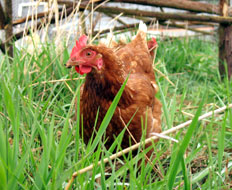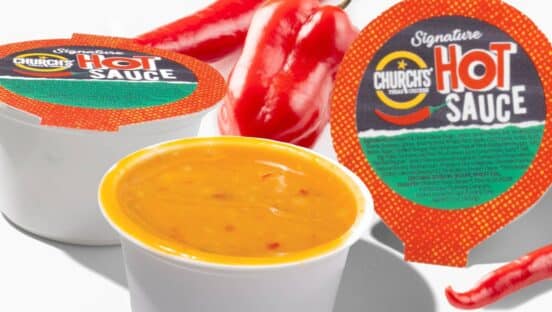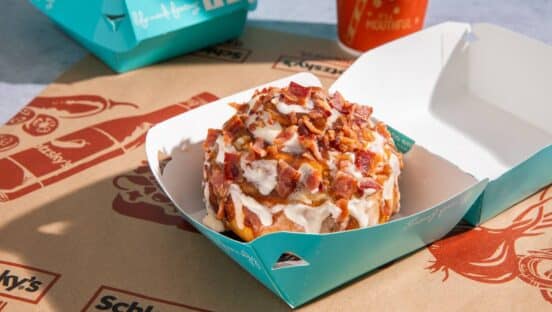Food production and agricultural sustainability seem to be on everyone’s mind these days. In fact, a report released in May by The International Food Information Council found that nearly 60 percent of Americans are now familiar with food sustainability issues. From best-selling books like Michael Pollan’s In Defense of Food and Mark Bittman’s Food Matters to widely read articles and editorials in The New York Times, TIME magazine, and USA Today, signs point to a dietary revolution that transcends concerns over health and delves into meatier matters, so to speak.
How animals are treated—and mistreated—has been central to this discussion, thanks to many leading quick serves. Starting in 2007, Burger King, Carl’s Jr., and Hardee’s have helped pave the way for better treatment of farm animals by incorporating cage-free eggs into their products.
Now that trend has become even stronger. Unilever, one of the world’s largest food companies and maker of iconic brands like Hellmann’s mayonnaise, recently stated that it will use exclusively cage-free eggs for all products in all countries. Wal-Mart and Costco announced that their private brand eggs are 100 percent cage free. Subway recently announced that it began the process of switching to 100 percent cage-free eggs. And other restaurant chains have also begun using cage-free eggs, including Wendy’s, Denny’s, Golden Corral, Cracker Barrel, Whataburger, Sonic, and Ruby Tuesday.
The Humane Society of the United States (HSUS) works cooperatively and behind the scenes to foster animal-friendly policies, and assisted most of these companies as they made these major strides forward. The HSUS provides these services free of charge because it believes in the spirit of cooperation and in finding practical and feasible solutions that work for everyone, whether it’s a consumer, retailer, or producer.
From the top down, the HSUS believes in helping companies thrive so that they can help animals. As one of the nation’s top 10 most fiscally responsible charities, according to Worth magazine, the HSUS understands how critical economic stability is. And the 11 million people who support the HSUS—as well as the hundreds of people employed by the organization—represent a broad cross-section of Americans, each with a variety of values, backgrounds, lifestyles, and diets. One thing that the organization’s staffers share is the simple belief that animals, including those raised for food, deserve basic protections from abuse.
But many in the quick-serve industry are starting to feel this way, too. A director at Subway, in announcing the company’s animal welfare policy, stated: “We have made a commitment to be more environmentally and socially responsible. We are working with our partners at the Humane Society of the United States … to take the steps needed to do this.”
Of its commitments, Burger King released a statement saying, “For almost a decade, we have used our purchasing power to encourage positive steps in … the production of cage-free animal products.” And Sonic Corp. recently stated, “Preventing … [animal] abuse is our corporate responsibility and quite simply, the right thing to do.”
These sentiments represent a growing industry trend of implementing more humane supply chains, and make good business sense considering the vast public support for proper farm-animal care.
But just how prominent is animal welfare in the discussion over agricultural practices? A Technomic study found that animal welfare is the third most important social issue to restaurant patrons, outranking buying local and buying organic by a wide margin. An American Farm Bureau–funded study, meanwhile, found that 95 percent of people believe that farm animals ought to be treated well.
Eight states have turned this sentiment into law by outlawing various forms of extreme farm-animal confinement, such as battery cages for egg-laying hens. Following the passage of one of those laws, The New York Times published an editorial calling extreme confinement “cruel and senseless” and stated that it “will turn out to be, we hope, a relatively short-lived anomaly in modern farming.” Speaking of the issue in a broader context, The American Conservative ran a cover article titled “Torture on the Farm: Why Conservatives Should Care about Animal Cruelty,” which condemned, strongly, the confinement of hens in cages and pregnant pigs in gestation crates.
Food industry trends analyst Phil Lempert, “The Supermarket Guru,” summed this up in his predictions for 2011 when he wrote: “Move over local. Move over organic. Humane is stepping in.”
Based on the actions of industry leaders like Burger King, Subway, Wendy’s, Denny’s, Sonic, and many others, the quick-serve industry is one step ahead on the issue of humanely raised foods, and has the opportunity to continue to lead the way.












